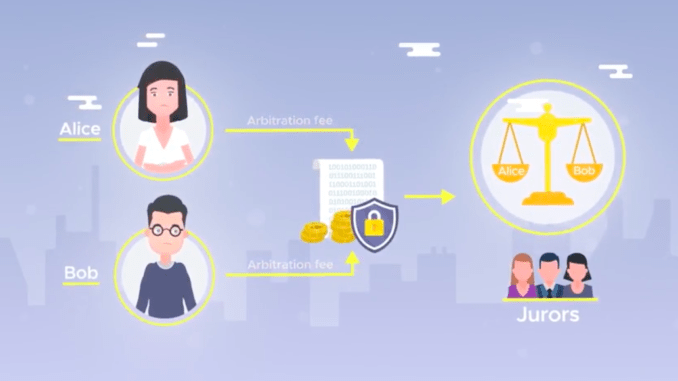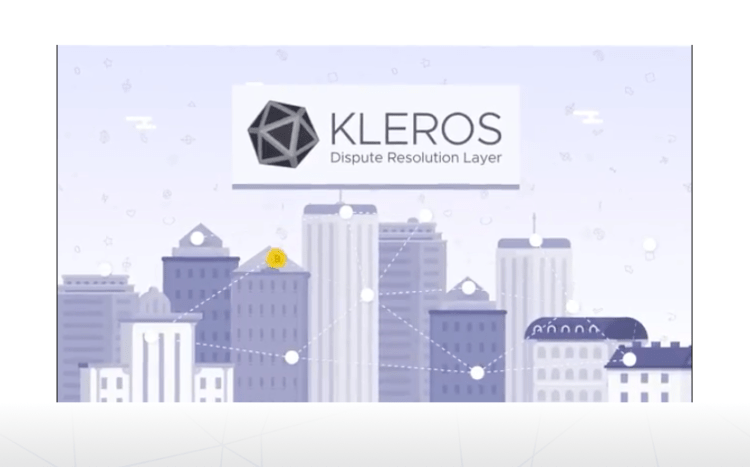
Thomson Reuters has brought blockchain-based legal arbitration platform, Kleros, into its Incubator Labs start-up programme in what appears to be an unusual step for the legal tech and information giant. The blockchain start-up company is also shortly to launch an ICO.
Kleros seeks to avoid the need for ‘bricks and mortar’ legal procedures and law firms by crowdsourcing justice. It works in the following way: a party signs up to a smart contract for a service, with that contract operating on a blockchain. If there is a dispute the funds for the service are stopped until an online arbitration takes place. This arbitration is organised by Kleros, which invites ‘jurors’ to be part of a particular hearing.
Or, as Kleros explains:
- ‘Users self-select into subcourts using an ERC 20 token (the Ethereum protocol) called pinakion (PNK).
- Jurors are drawn randomly from all those who self-selected.
- Juror incentives come from two sources: arbitration fees and token redistribution.
- All jurors drawn to rule on a case collect arbitration fees (which are paid by the customer in Ether – the token used on the Ethereum blockchain).
- After the decision is made, jurors who voted incoherently with the rest are penalized by the loss of the PNK used as deposit.
- Jurors who voted coherently with the rest are rewarded with the PNK lost by jurors who voted incoherently.
- The incentive scheme is based on the Schelling Point principle. The token incentivizes users to vote honestly. Jurors who try to game the system will lose money.’

The company goes on to say in its White Paper:
‘The rise of the digital economy created labour, capital and product markets that operate in real time across national boundaries. The P2P economy requires a fast, inexpensive, decentralized and reliable dispute resolution mechanism. Kleros uses game theory and blockchain in a multipurpose arbitration protocol capable of supporting a large number of applications in e-commerce, finance, insurance, travel, international trade, consumer protection, intellectual property and academia among many others.’
The company concludes: ‘Just as Bitcoin brought “banking for the unbanked”, Kleros has the potential to bring “justice for the unjusticed”.’
This would also however seem to be an area guaranteed to get lawyers talking, given that it raises all kinds of issues, such as legal enforceability, jurisdiction, appeals processes and accountability. But Thomson Reuters is excited nevertheless and has brought Kleros aboard their flagship tech incubator based in Switzerland.
Dr. Federico Ast, Kleros Co-founder and CEO, said: ‘The entire Kleros team feels incredibly honoured to be chosen as only the fifth project accepted in the Incubator Labs program.’
‘Thomson Reuters’ capabilities and trajectory in legal and financial industries will help bridge the gap between blockchain and the real world. This is a big step for using the power of smart contracts to solve real life problems,’ he added.
To learn more about Kleros check out the two videos below:
1 Trackback / Pingback
Comments are closed.